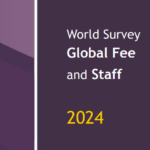Sustainability Reporting in Accounting: A Pathway to Responsible Business Practices
In recent years, sustainability reporting has gained significant importance in the field of accounting, reflecting a growing recognition of the need for businesses to operate responsibly and transparently. This article explores the concept of sustainability reporting, its relevance in accounting, and its impact on corporate accountability and long-term success.
What is Sustainability Reporting?
Sustainability reporting refers to the practice of disclosing a company’s environmental, social, and governance (ESG) performance alongside its financial performance. This type of reporting provides stakeholders with a comprehensive view of how a company manages its non-financial risks and opportunities. The goal is to enhance transparency and accountability, allowing stakeholders to make informed decisions about the company’s practices and long-term viability.
The Importance of Sustainability Reporting in Accounting
- Enhanced Stakeholder Communication: Sustainability reporting allows companies to communicate their commitment to sustainable practices to stakeholders, including investors, customers, employees, and the broader community. This communication fosters trust and can enhance the company’s reputation.
- Risk Management: By addressing ESG issues, companies can identify and mitigate potential risks impacting their financial performance. For example, environmental risks, such as climate change, can have direct financial implications. Reporting these risks demonstrates proactive management and can lead to better risk assessment.
- Compliance and Regulation: As governments and regulatory bodies increasingly emphasize sustainability, companies are required to comply with various reporting standards. Sustainability reporting helps companies stay ahead of regulatory requirements and avoid potential legal issues.
- Attracting Investors: Investors are increasingly looking for companies that prioritize sustainability. ESG-focused funds and socially responsible investing (SRI) are rising, and sustainability reporting can make a company more attractive to these investors. It clearly shows the company’s long-term strategy and alignment with global sustainability goals.
- Long-term Value Creation: Sustainability reporting encourages companies to adopt a long-term perspective. By focusing on sustainable practices, companies can create value for shareholders and all stakeholders, including society and the environment. This approach can lead to more sustainable financial performance over time.
Key Components of Sustainability Reporting
- Environmental Factors: These include the company’s impact on natural resources, carbon footprint, energy consumption, waste management, and water usage. Companies report on their initiatives to reduce environmental impact and progress toward achieving environmental goals.
- Social Factors: Social reporting covers the company’s approach to human rights, labor practices, community engagement, diversity and inclusion, and employee well-being. It reflects the company’s commitment to ethical practices and social responsibility.
- Governance Factors: Governance reporting focuses on the company’s leadership, ethics, transparency, and accountability. It includes information on board composition, executive compensation, anti-corruption measures, and compliance with laws and regulations.
- Economic Factors: While traditional financial reporting focuses on economic factors, sustainability reporting integrates these with ESG considerations, offering a holistic view of the company’s overall performance.
Frameworks and Standards for Sustainability Reporting
Several frameworks and standards guide sustainability reporting, ensuring consistency, comparability, and reliability of the information disclosed. Some of the most widely recognized include:
- Global Reporting Initiative (GRI): GRI provides a comprehensive framework for sustainability reporting, covering various ESG issues.
- Sustainability Accounting Standards Board (SASB): SASB focuses on industry-specific sustainability standards that are financially material to companies and investors.
- Task Force on Climate-related Financial Disclosures (TCFD): TCFD offers guidelines for reporting climate-related risks and opportunities, emphasizing financial implications.
- Integrated Reporting (IR): Integrated Reporting combines financial and non-financial information, demonstrating how a company’s strategy, governance, performance, and prospects lead to the creation of value over the short, medium, and long term.
Challenges and Future Trends
Despite its growing importance, sustainability reporting faces several challenges. These include the complexity of data collection, the lack of standardization across industries, and the need for greater assurance of the reported information. As the demand for sustainability reporting increases, companies will need to invest in robust reporting systems and processes to ensure the accuracy and reliability of their reports.
Looking ahead, sustainability reporting is expected to become even more integral to corporate reporting. Technological advances, such as big data and artificial intelligence, will likely improve data quality and accessibility of ESG data. Additionally, as global sustainability challenges, such as climate change and social inequality, become more pressing, companies will be under greater pressure to demonstrate their commitment to sustainable practices.
Conclusion
Sustainability reporting represents a critical evolution in the field of accounting, reflecting a broader shift toward responsible business practices. By integrating ESG factors into their reporting, companies enhance transparency and accountability and position themselves for long-term success in an increasingly sustainability-conscious world. As stakeholders continue to prioritize sustainability, companies embracing comprehensive and transparent sustainability reporting will be better equipped to thrive in the future.


